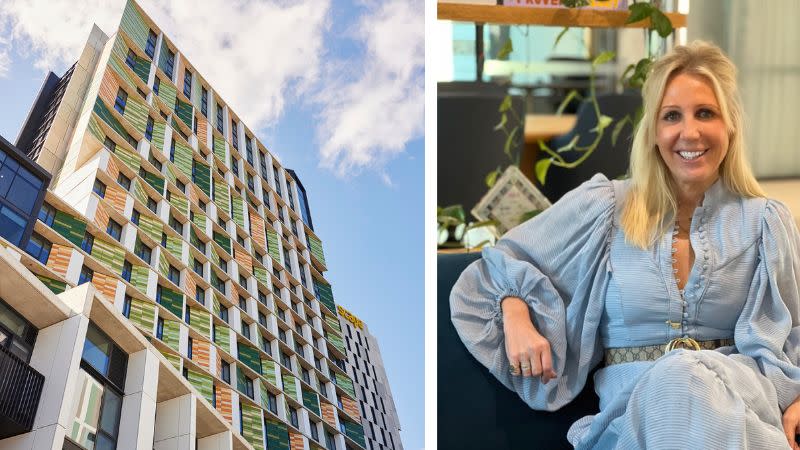Build Student Digs or Find a Partner Who Does, Unis Urged
Universities must create their own student accommodation or partner with somone who does to relieve the pressure on private rentals.
And it will be the fastest way to find beds for students, according to a report responding to the Australian Universities Accord from the Property Council of Australia’s Student Accommodation Council.
The Australian Government invested $2.7 million over two years from 2022–23 to deliver the Australian Universities Accord through a 12-month review of Australia’s higher education system.
The objective was to “devise recommendations and performance targets to improve the quality, accessibility, affordability and sustainability of higher education, in order to achieve long-term security and prosperity for the sector and the nation”.
It is due to be released on Sunday.
“Purpose-built student accommodation has a crucial role to play in providing safe, high amenity housing for students who are a vital source of life for our CBDs,” Student Accommodation Council executive director Torie Brown said.
“The sector takes nearly 80,000 students out of the general rental market each year.”
Also in the report, the council, which was set up in May, 2022, said a mooted tax increase for universities would inevitably be passed on to international students.
Brown said that rather than encouraging overseas students, it would make Australia less affordable for them.
“Any tax on university revenue is also a tax on international students, who are one of the biggest revenue sources for the higher education sector,” Brown said.
“International students are already spending upwards of $30,000 per year to study at a top Australian university.
“We urge universities not to pass this tax on to international students, which may cause them to consider more affordable countries to study in.”

Brown said that international students in CBD areas stimulated the local economies at a time when the slow return to the office by workers was costing CBD businesses dearly.
“We produced a report in 2022 that showed students living in purpose-built student accommodation spend on average $4800 in Melbourne and $4680 in Sydney per month on eating out, recreation and retail,” Brown said.
“The economic impact of having these students in our CBDs is huge—we cannot afford to lose them to competitor jurisdictions such as Canada and the US.”
“Australia is already a high-cost jurisdiction for international students—if these taxes get passed on through university fees, we will begin to degrade our competitive edge in the global marketplace.”
Developer Scape chief executive Anouk Darling said it was important that the Australian Universities Accord acknowledged the role of purpose-built student accommodation, agreeing it was critical to freeing up space in the private rental market.
“The PBSA sector accommodates nearly 80,000 students out of the general rental market each year, with Scape alone housing over 17,000 student residents nationally,” Darling said.
“Scape will also bring an additional 1241 beds come online this year, with the opening of Scape Victoria Street in Melbourne in this month, as well as Scape Leicester in Victoria and Kingsford in Sydney, which will be online for the second semester of 2024.”
Darling said she was keen to work not just with universities but other key stakeholders to help reduce pressure on the private rental market.
“Demand for housing in general is high in Australia, so we want to continue to work with government, university and industry bodies to better alleviate this pressure,” Darling said.















